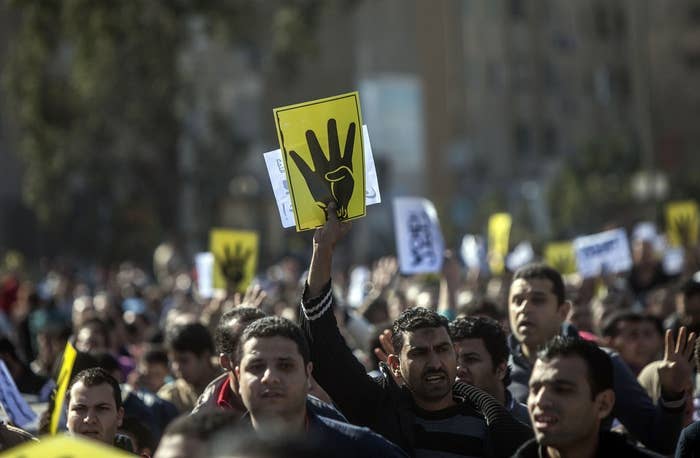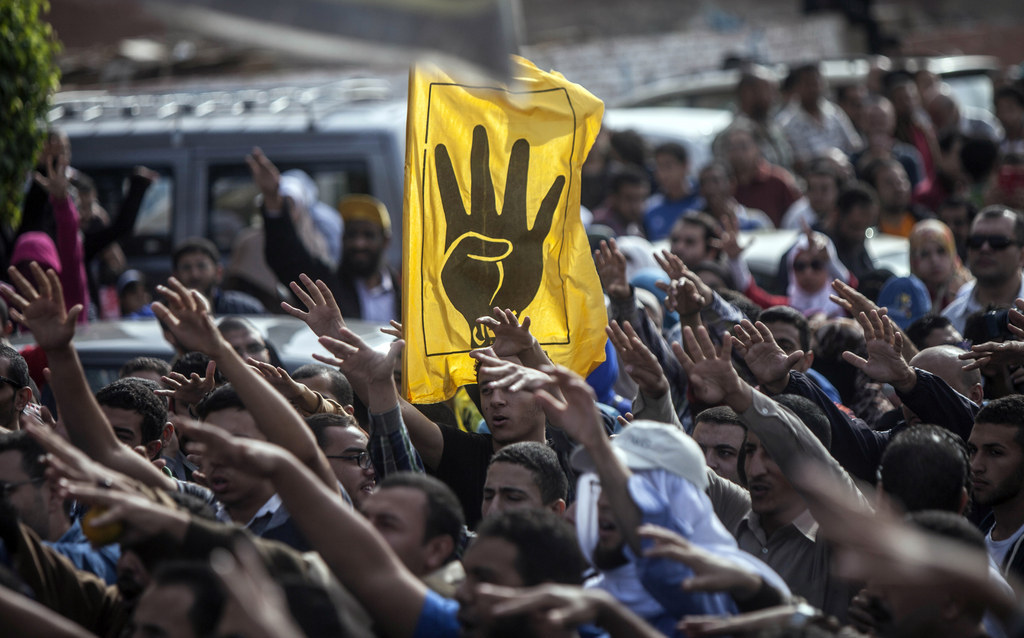The UK government has concluded that members of the Muslim Brotherhood are possible extremists but stopped short of banning the organisation, David Cameron announced on Thursday as he published a long-awaited review.

The review, which was ordered by the prime minister in 2014, found that the Muslim Brotherhood – an Islamic political group founded in Egypt in 1928 – had provided a "rite of passage for some individuals and groups who had gone on to engage in violence and terrorism". It also said "aspects" of the group's beliefs "ran counter to British values".
In a written ministerial statement to parliament, Cameron said parts of the organisation had a "highly ambiguous relationship with violent extremism".
"The main findings of the Review support the conclusion that membership of, association with, or influence by the Muslim Brotherhood should be considered as a possible indicator of extremism," he said.
The review did not call for the organisation to be banned at this stage. The government will "keep under review whether the views or activities of the Muslim Brotherhood meet the legal test for proscription", Cameron said.
Other measures that could be considered include "refusing visas to members and associates of the Muslim Brotherhood who are on record as having made extremist comments" and monitoring charities linked to the organisation suspected of funding the group's activities overseas.
However, the Muslim Brotherhood told BuzzFeed News it rejects the findings of the report and plans to challenge the government in court.
The report also said the Muslim Brotherhood had "selectively used violence and sometimes terror in pursuit of their institutional goals".
"Their public narrative, notably in the West, emphasised engagement not violence," the report said. "But there have been significant differences between Muslim Brotherhood communications in English and Arabic."
Although the report conceded that the Muslim Brotherhood in the UK has "publicly committed to political engagement", it warned that "even by mid-2014, statements from Egyptian Muslim Brotherhood-linked media platforms seem to have deliberately incited violence."
Though the report was commissioned early last year, publication of its findings has consistently been delayed, prompting accusations that the government was withholding it to avoid upsetting allies in the Middle East.

The review was led by former British ambassador to Saudi Arabia Sir John Jenkins. Although little has been said about what prompted it, some have speculated that it was called after pressure from Saudi Arabia and other key partners in the region.
Saudi Arabia, the UAE, and Egypt all list the Muslim Brotherhood as a terrorist organisation, meaning membership can result in long prison sentences or even the death penalty.
The review found that the organisation has had a "significant influence" on the main national groups that represent Muslim communities, charities, and mosques in the UK.
Individuals associated with the group in this country had also characterised the UK as "fundamentally hostile to Muslim faith and identity" and expressed support for Hamas terrorist attacks, Cameron said.
The report said its primary aim of creating a caliphate under Sharia law should be seen "primarily as a political project".
Although the review does not accuse the Muslim Brotherhood of being a violent organisation and acknowledges that it stated its opposition to al-Qaeda, Cameron said the organisation had "never credibly denounced the use made by terrorist organisations of the work of Sayyid Qutb, one of the Brotherhood's most prominent ideologues".
Responding to the report, Yehia Hamed, head of foreign relations for the Muslim Brotherhood said:
"The Muslim Brotherhood does not accept the findings outlined in the Prime Minister's statement. We do not accept that these conclusions can be based on credible evidence.
"The Muslim Brotherhood has worked tirelessly to promote the rule of law and democracy in the Middle East. We are most concerned that the Prime Minister's statement will afford comfort to those regimes in the region that abuse human rights in order to maintain their own autocratic rule."
Hamed said lawyers acting for the organisation's had "repeatedly requested right to reply" of criticism during the review to ensure the report was "well informed and credible" but that this had been denied.
The group also announced it "planned to challenge the process of the review and its findings in court".
